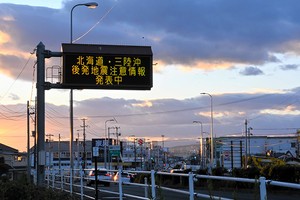By TAKEHIRO TOMODA/ Staff Writer
December 14, 2021 at 16:27 JST
 An outlet of the Uniqlo casual clothing chain in Beijing in April (Asahi Shimbun file photo)
An outlet of the Uniqlo casual clothing chain in Beijing in April (Asahi Shimbun file photo)
Joining the global trend, Keidanren (Japan Business Federation) will call for member companies to implement “human rights due diligence” to ensure that their business activities are not connected to violations of human rights.
The federation is expected to revise its “corporate behavior charter” on Dec. 14, which defines obligatory guidelines for its members, and add a clause that says member companies will properly carry out human rights due diligence.
It will urge companies to prevent human rights violations and take corrective actions immediately if they occur.
If such a violation occurs and a single company cannot rectify the situation immediately, the industry involved should respond to the problem, Keidanren said.
The human rights violation due diligence is a measure to ensure through checking of any business activity that carries a high risk of violating human rights and make an improvement when such a violation is confirmed.
It is named after the due diligence process conducted during an asset assessment for acquisition.
Business activities that benefit from human rights violations have come under scrutiny in recent years, putting affected companies at risk of the negative consequences from exposure.
In January this year, the United States suspended importation of Uniqlo brand cotton shirts based on an import ban over forced labor involving ethnic minorities in China’s Xinjiang Uighur Autonomous Region.
Since the mid-2010s, countries such as France and Germany have required an implementation of human rights due diligence obligations.




















A peek through the music industry’s curtain at the producers who harnessed social media to help their idols go global.
A series based on diplomatic documents declassified by Japan’s Foreign Ministry
Here is a collection of first-hand accounts by “hibakusha” atomic bomb survivors.
Cooking experts, chefs and others involved in the field of food introduce their special recipes intertwined with their paths in life.
A series about Japanese-Americans and their memories of World War II